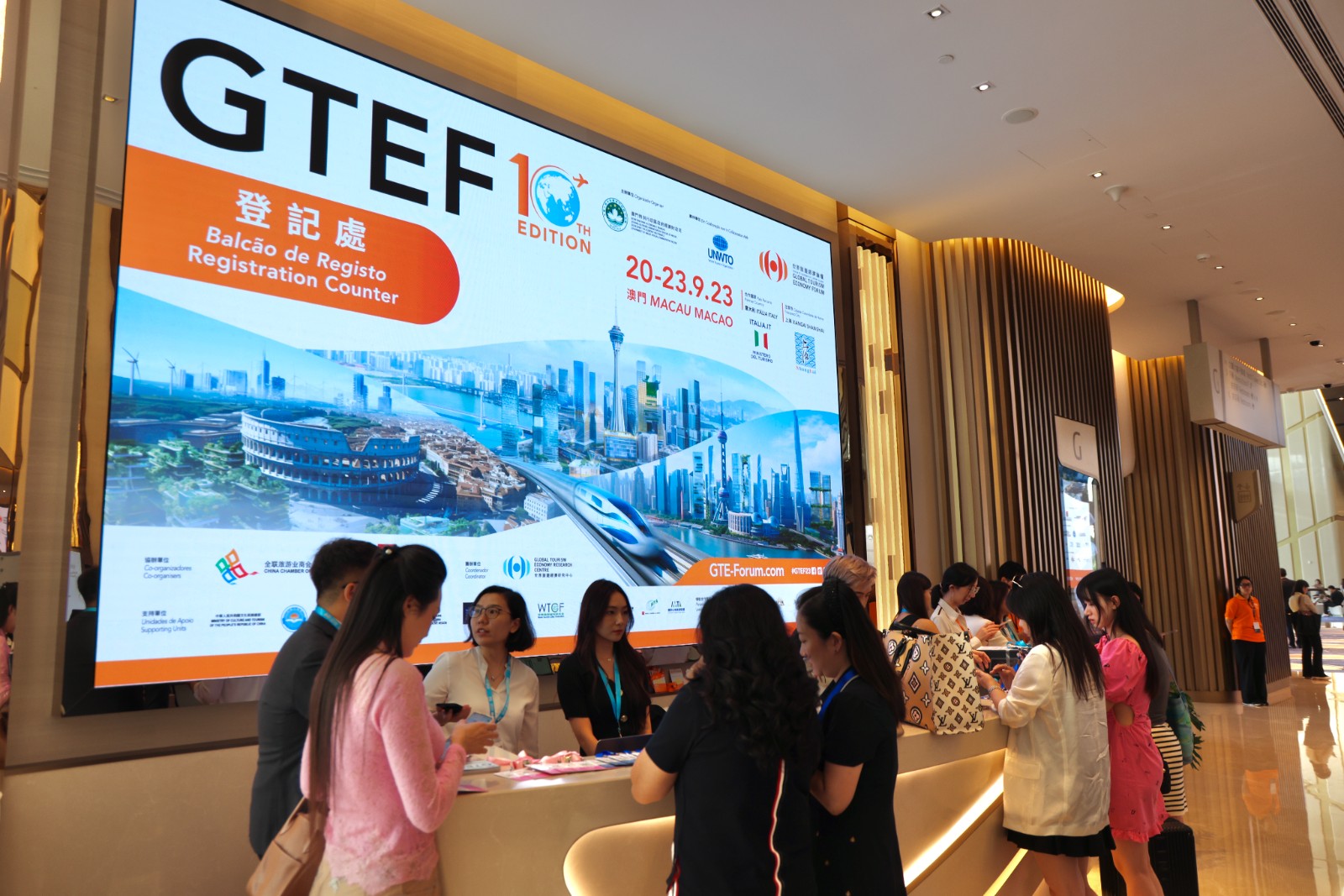2023-09-22
Xu Weiwei

MACAO – The Asia-Pacific region can contribute to the transformation of tourism in the next decade by putting the industry on a more sustainable path, enhancing digitalization, and boosting a diversification policy, experts said at a panel in Macao on Friday. They had a discussion about how the region can define tourism’s long-term sustainability during the session, “Sustainability in Focus: Navigating the Future of Tourism in Asia” at the Global Tourism Economy Forum in Macao. Hae Guk (Harry) Hwang, regional director for Asia and the Pacific at the World Tourism Organization (UNWTO), stressed the importance of sustainability, green transformation, and climate action in a speech first. The Asia-Pacific Department at UNWTO is “fully ready to embark on this exciting journey of sustainability,” he noted. Maria Helena de Senna Fernandes, director of the Macao Government Tourism Office and vice-chairman of GTEF, emphasized the role of technology, saying that it has become part of tourism development or tourism recovery, and that there are now various platforms to reach target customers better than in the past, and they can enhance customer satisfaction in the industry. According to Senna Fernandez, tourism accounts for nearly half of Macao’s GDP, which is unparalleled. However, the COVID-19 pandemic has shown that being so dependent on one industry is not sustainable for a destination, as this involves risks. The Macao government has come up with a diversification strategy going forward, she noted, describing the policy as one plus four: One referring to integrated tourism, with four areas of new development or diversification being technology; modern finance; meetings, incentives, conventions and exhibitions (Mice), culture and sports; health and well-being. So first, tourism has the role of giving ingredients or a breeding ground for the new kinds of industries that we can be engaging in, Senna Fernandez said. Priantha Fernando, chairman of the Sri Lanka Tourism Development Authority, said that sustainability in his country will be the key in developing tourism. “Also, tourism is not just an industry. It is a key player when it comes to the economy,” he said. Fernando said that from 2009 to 2018, Sri Lanka’s tourism sector enjoyed above average growth of around 20 percent a year. “We registered 2.3 million tourist arrivals (in 2018) with $4.3 billion in earnings from tourism. Unfortunately, in 2019 we had some incidents which affected tourism, and at a time when we were about to recover from that, the COVID outbreak really crippled the (travel) industry,” he said, “Only now are we are coming out of that.” Fernando said that Sri Lanka started giving more priority to sustainability matters prior to COVID-19, and they moved in this direction thanks to the assistance of the United Nations Development Programme. The island nation has set up nine provincial sustainable tourism units, with the key unit based in Colombo, which monitors the industry. It is currently developing a marine master plan. “As we move forward, sustainability is going to be key,” he said, “It’s not only for Sri Lanka, but for the entire region. We will have to work together in having sustainable tourism destinations.” Hussain Niyaaz, secretary of Economic Development Cooperation, Ministry of Foreign Affairs, the Maldives, said that his country is strategically located in terms of connectivity with the rest of the world. “We are quite central,” he said, “So that is the key to our success of our tourism, also the connectivity with the main markets in the world.” He said the Maldives needs to provide diversification because mostly when people around the world talk about the Maldives, they may feel it is too expensive because it is luxurious. “But with this new concept of local island hotels”, tourists have more variable products and more affordable products, he added. Niyaaz also noted that the Maldives have one concept, led by the private sector and facilitated by the government. “And we, the government, are only facilitating in terms of providing the basic services,” he said. Christina Garcia Frasco, secretary of the Department of Tourism of the Philippines, said her country sees itself as becoming a tourism powerhouse in Asia. “Sustainability and tourism have been absolute necessities and the driving force for the development of our country as early as 2009,” she said. “With the passage of the law that created the Tourism Act, sustainable tourism was identified by our government as being integral for social economic development.”